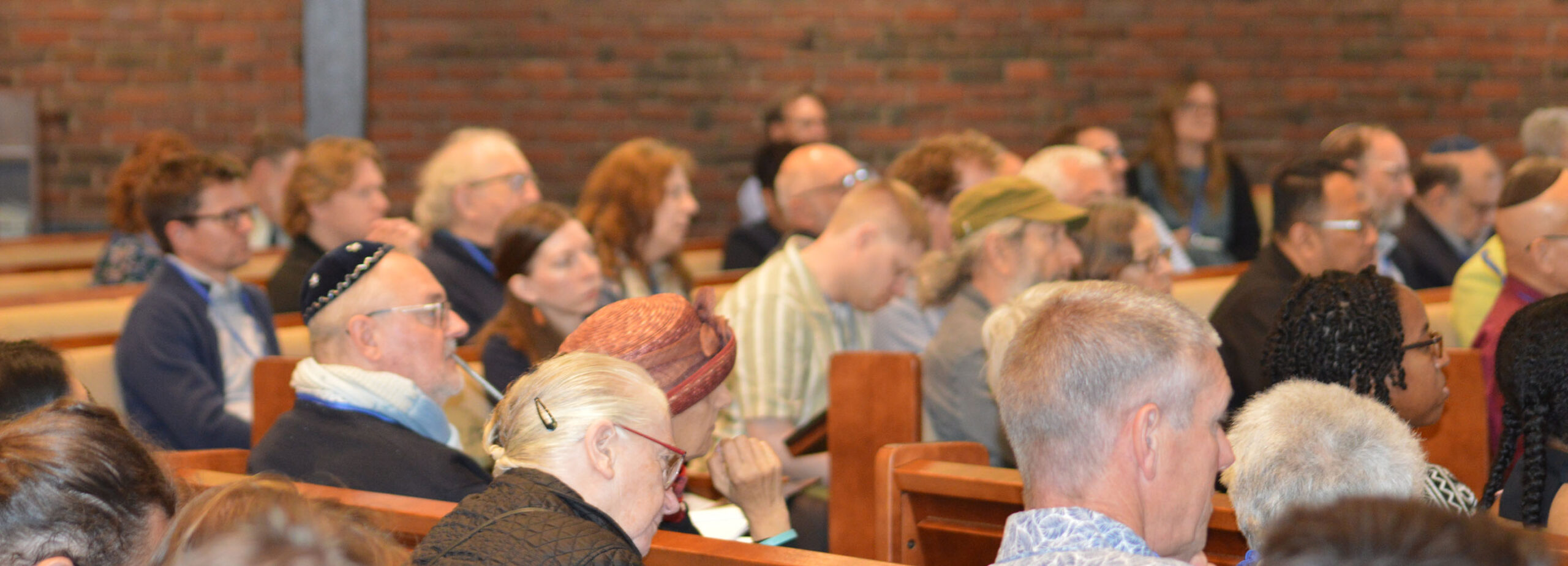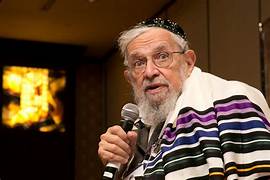Jewish learning An Unexpected Master-Disciple Relationship: Rev. Howard Thurman & Rabbi Zalman Schachter-Shalomi

Earlier this week, approximately 150 people—from over 20 countries—gathered in Boston for the annual conference of the International Council of Christians and Jews (ICCJ). The meeting was hosted by Boston College and my institution, Hebrew College. The conference theme was “Negotiating Multiple Identities: Implications for Interreligious Relations,” and our meeting coincided with the national holiday of Juneteenth.
 One highlight of the ICCJ conference for me was our visit to the Howard Thurman Center for Common Ground of Boston University (BU). There, we viewed a recent documentary film about the life and work of the Reverend Howard Thurman (d. 1981) and discussed his legacy today. Rev. Thurman, a distinguished African American preacher, writer, educator, and pastor, played a key role in the Civil Rights Movement and was a groundbreaking interreligious and cross-cultural leader.
One highlight of the ICCJ conference for me was our visit to the Howard Thurman Center for Common Ground of Boston University (BU). There, we viewed a recent documentary film about the life and work of the Reverend Howard Thurman (d. 1981) and discussed his legacy today. Rev. Thurman, a distinguished African American preacher, writer, educator, and pastor, played a key role in the Civil Rights Movement and was a groundbreaking interreligious and cross-cultural leader.
Thurman’s 1949 book Jesus and the Disinherited was widely considered a foundational political-theological text among Civil Rights leaders, including his student the Reverend Dr. Martin Luther King Jr. Representative John Lewis often referred to Thurman as the “pastor” of the Movement, as the latter provided MLK, Lewis, Rev. Jesse Jackson, Pauli Murray, and others with spiritual council throughout their years of struggle for equity and justice. In 1953, Thurman became the first African American dean of BU’s Marsh Chapel and the first Black person to hold such a position at any majority-white university in the United States.
I first learned of Howard Thurman some years ago from my beloved teacher Rabbi Zalman Schachter-Shalomi (d. 2014), founder of the Jewish Renewal Movement. Long before Reb Zalman (an informal title he preferred) emerged as a modern Jewish mystical sage and international religious figure, he began an idiosyncratic spiritual journey that took him from the more insular world of HaBaD-Lubavitch Hasidism into dialogue with an array of practitioners from the world’s religions and cultures.
Among his earliest and most influential interreligious and inter-racial interlocuters was Dean Thurman, whom he first met in 1955 as a graduate student at BU’s School of Theology. By the end of that academic year, Reb Zalman lovingly referred to him as his “Black Rebbe” (the customary term for a Hasidic master). In describing Thurman’s influence on him, Reb Zalman said that his BU mentor caused him to “redraw his reality map.” To put it plainly, the emerging (already off-beat) Hasidic rabbi had not yet met a non-Jewish religious figure—or person of color—like Thurman, whose intellectual, pedagogical, and pastoral abilities he would come to admire so much and seek to emulate in his own work. In the ensuing years, Reb Zalman would meet several other individuals and groups who would further alter his perception of non-Jews and non-Jewish religious traditions and help deepen his thinking on related ethnic and racial matters. This included the Catholic (Trappist) monk and writer Thomas Merton (d. 1968) and the Western Sufi leader Pir Vilayat Inayat Khan (d. 2004).
 Part of what impressed Reb Zalman so much about Thurman was the fact that his love and reverence for Jesus of Nazareth led him to conclude that all human beings are children of God and that there are many ways—all imperfect—to live meaningful and conscientious lives in relationship with the Divine. Thurman was a mystical pluralist, who regularly spoke of “God’s glory” suffusing “all of creation” (Isaiah 6:3). Reb Zalman found this theological-ethical perspective deeply resonant with his own evolving Hasidic understanding of the interconnected and interdependent nature of life. And unlike most of the religious figures he had encountered to date—both Jewish and non-Jewish—Thurman felt no need to argue for the superiority of his chosen religious path. Moreover, Thurman’s experiences of oppression as a Black person at the hands of white Christian nationalists, including the Ku Klux Klan, made him particularly sensitive to others who lived in the “shadow of the cross” (to borrow a term from the contemporary Catholic writer James Carroll).
Part of what impressed Reb Zalman so much about Thurman was the fact that his love and reverence for Jesus of Nazareth led him to conclude that all human beings are children of God and that there are many ways—all imperfect—to live meaningful and conscientious lives in relationship with the Divine. Thurman was a mystical pluralist, who regularly spoke of “God’s glory” suffusing “all of creation” (Isaiah 6:3). Reb Zalman found this theological-ethical perspective deeply resonant with his own evolving Hasidic understanding of the interconnected and interdependent nature of life. And unlike most of the religious figures he had encountered to date—both Jewish and non-Jewish—Thurman felt no need to argue for the superiority of his chosen religious path. Moreover, Thurman’s experiences of oppression as a Black person at the hands of white Christian nationalists, including the Ku Klux Klan, made him particularly sensitive to others who lived in the “shadow of the cross” (to borrow a term from the contemporary Catholic writer James Carroll).
One simple, but profound, example of Reb Zalman’s abiding appreciation for Dean Thurman is that when he published his 2012 book, Davenning: A Guide to Meaningful Jewish Prayer (written with Joel Segel), he dedicated it to two of his early HaBaD mentors and to Thurman. Reb Zalman spoke many times about how Thurman’s graduate seminar, “Spiritual Disciplines and Resources” served as a template for his own teaching for decades to come. What he found most transformative about this course was his teacher’s use of “experiential labs,” in which students were asked to experiment with various embodied practices based on the theoretical learning they were doing in the lecture hall. This included song and chant, breath work and movement, and drama and other art forms. Anyone familiar with Reb Zalman’s pedagogic practices could immediately identify the lasting influence that this early seminar experience had on him. In his mind it dovetailed with and extended his training as a HaBaD rabbi, which included sophisticated teachings on the devotional life.
This Shabbat marks the ninth anniversary (5 Tammuz on the Jewish calendar) of the passing of Reb Zalman. In remembering this innovative and influential rabbinic figure, it is important to explore his relationships with his mentors and dialogue partners. Otherwise, one cannot understand how he wove together the strands of his identity and developed his vision for Jewish spiritual renewal. Reb Zalman’s project included the stitching together of insights from classical Jewish sources with those from an array of other religious and cultural traditions (including Beat, Hippie, and New Age influences). Rev. Howard Thurman provided him with early and vital nurturance as he developed what Dr. Shaul Magid has aptly called “Rainbow Hasidism.”
May the memories of these daring and compassionate religious bridge-builders serve as an inspiration to all those who seek to repair and strengthen relationships across lines of difference.
Rabbi Or N. Rose is the founding director of the Miller Center for Interreligious Learning & Leadership of Hebrew College. He is the co-editor of Rabbi Zalman Schachter-Shalomi: Essential Teachings (Orbis Books). Rabbi Rose also served as the co-chair of the 2023 ICCJ conference.

